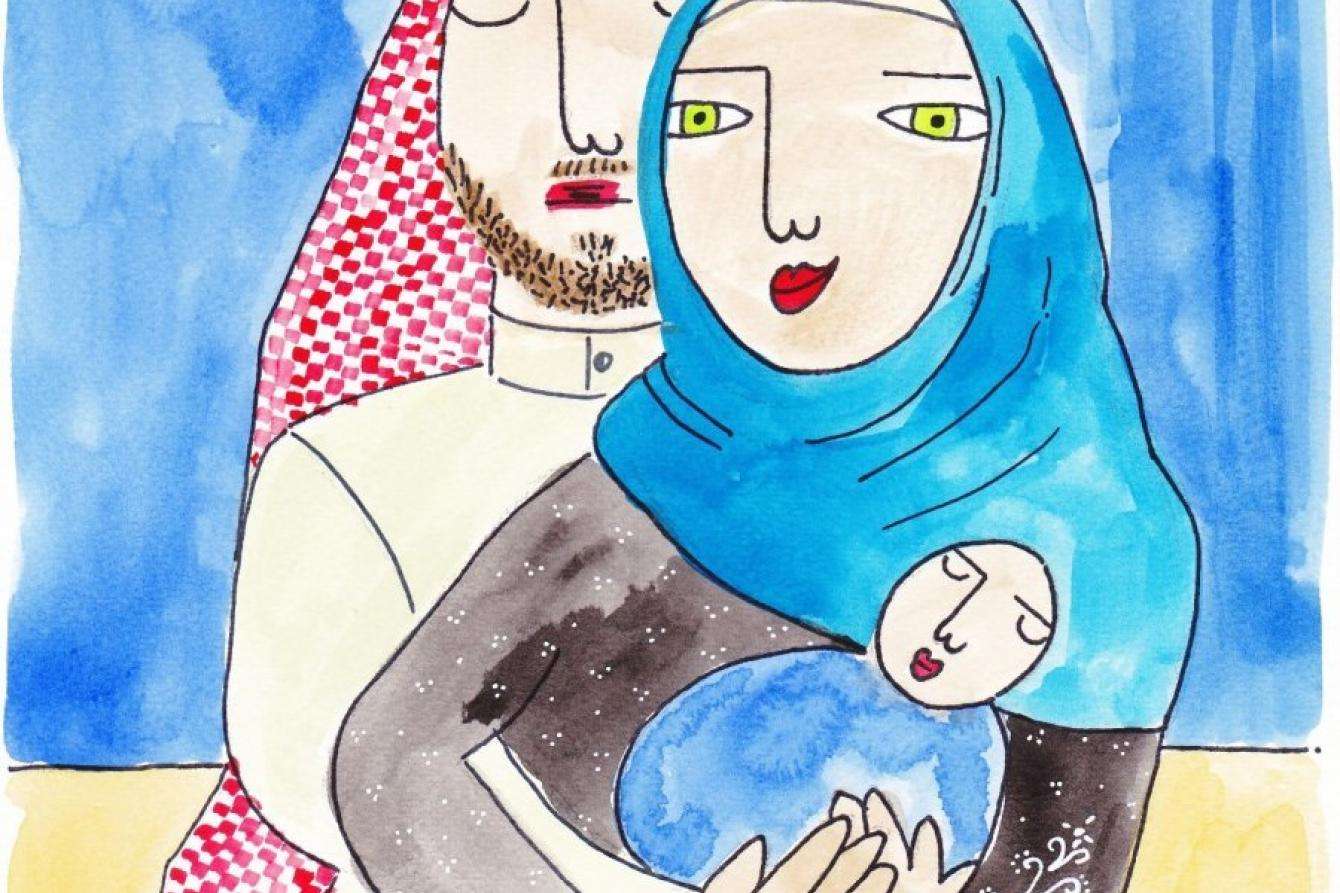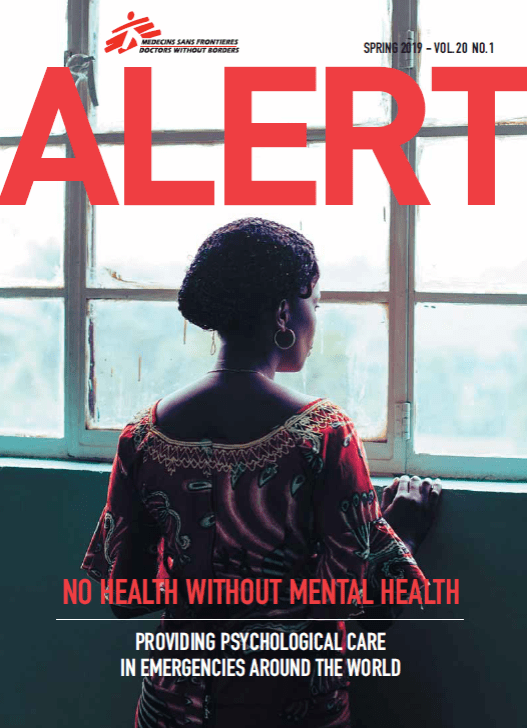Australian psychologist Diane Hanna recently returned from her first assignment with Doctors Without Borders/Médecins Sans Frontières (MSF) in Mosul, Iraq, where she provided mental health care to people displaced by conflict in the city.
Here, Diane shares her impressions the powerful artwork she created to help tell the stories of the women and children she met in Mosul.
Fleeing Mosul
It is impossible to imagine fleeing from your city with buildings burning behind you, gunfire all around you, running with your baby, and the few items you managed to grab.
The desperation and hopelessness are depicted in this painting as the sun (or moon) which appears to be the only witness to the suffering, in a culture where public emotional expression is not the norm.
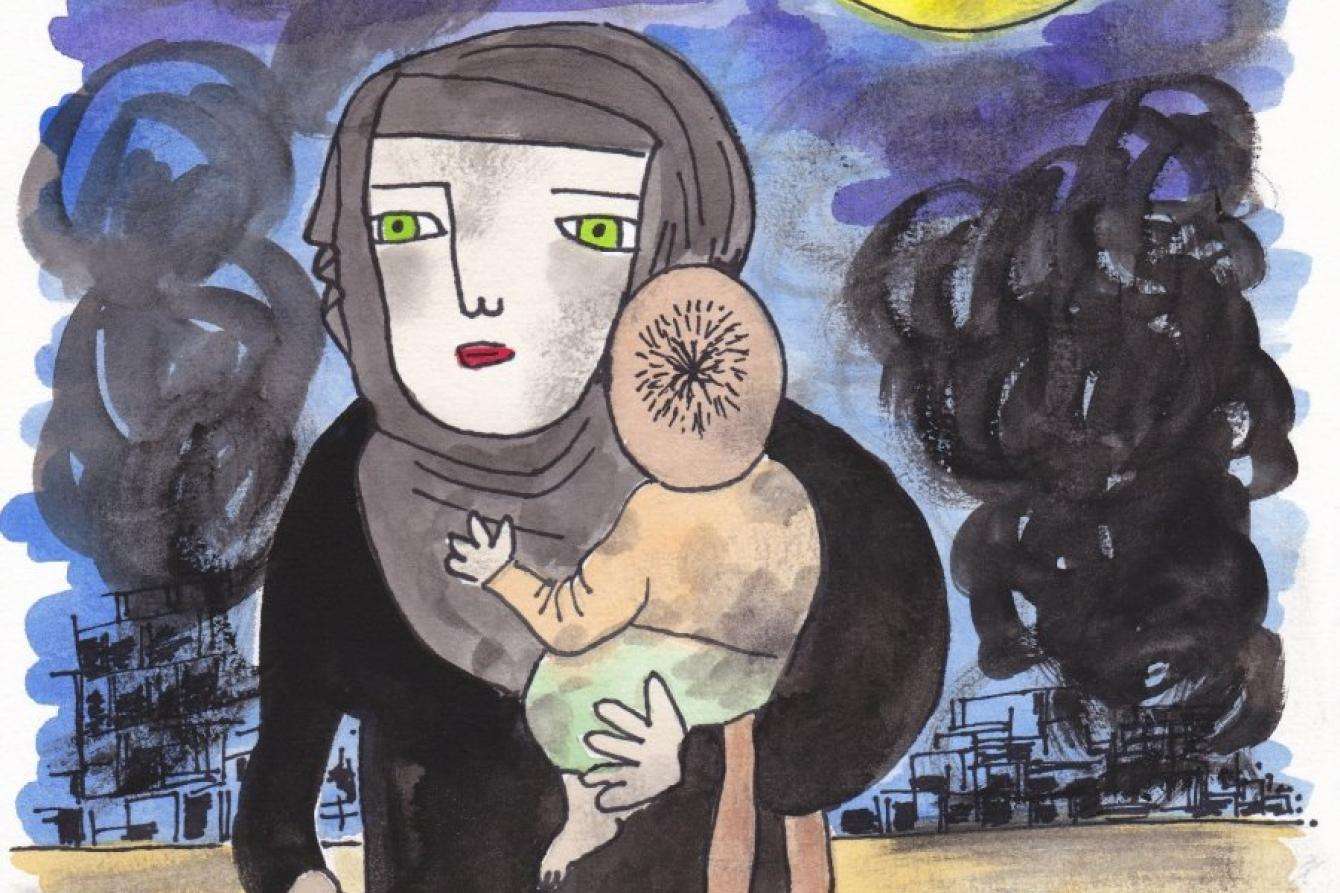
Alone in the dark
On our way from Qayyarah town to the Jeda’ah camps each morning, I would see children wandering around the camp, dusty, disheveled, simply looking for something to do.
This image depicts the sense of loneliness and helplessness that I imagined them experiencing after dark.

Come back to me
As I finished this piece, my friend’s little girl commented, "Di, you forgot the tears for the teddy, he's sad now too."
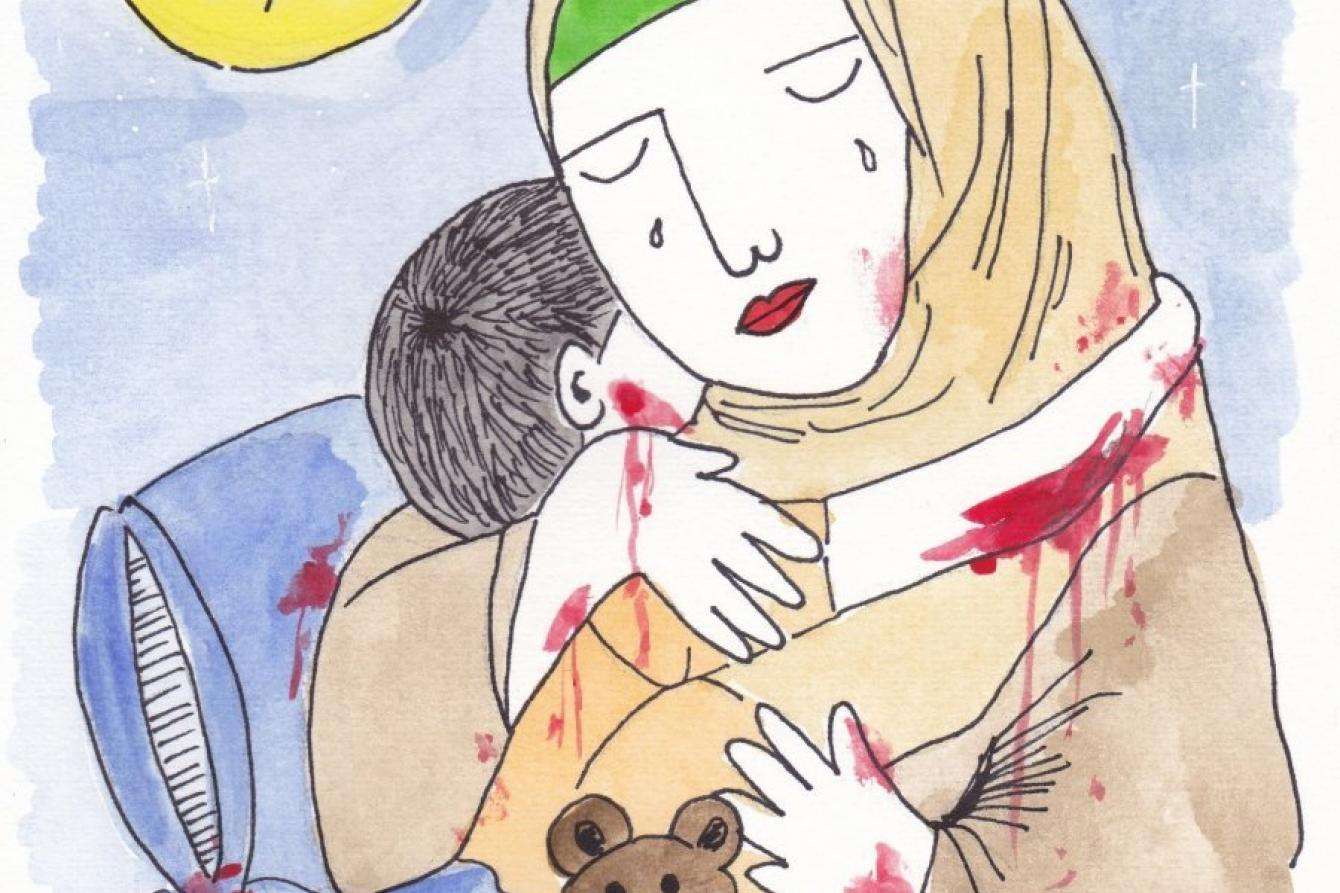
Babies wait
With temperatures reaching almost 131 degrees Fahrenheit (even higher in the tents), the high-pitched sound of all the little babies crying in distress was heart-breaking.
Each morning, our team in Qayyarah would see parents, guardians, and their children, who walked over three miles to reach our services through hot sand storms with no food and little water.

Myself and Dr. Sandra
The best practice treatment for severe acute malnutrition is therapeutic feeding in conjunction with psychosocial support and education.
Our team in Qayyarah assessed and treated women and their babies. Plumpy’Nut, a therapeutic food, was given to babies over six months as part of a continuing therapeutic program through our outpatient nutrition center. While the mental health team provided individual and group psychotherapy, activities for the children, behavioral intervention, psycho-education, baby massages, and psychosocial stimulation groups.
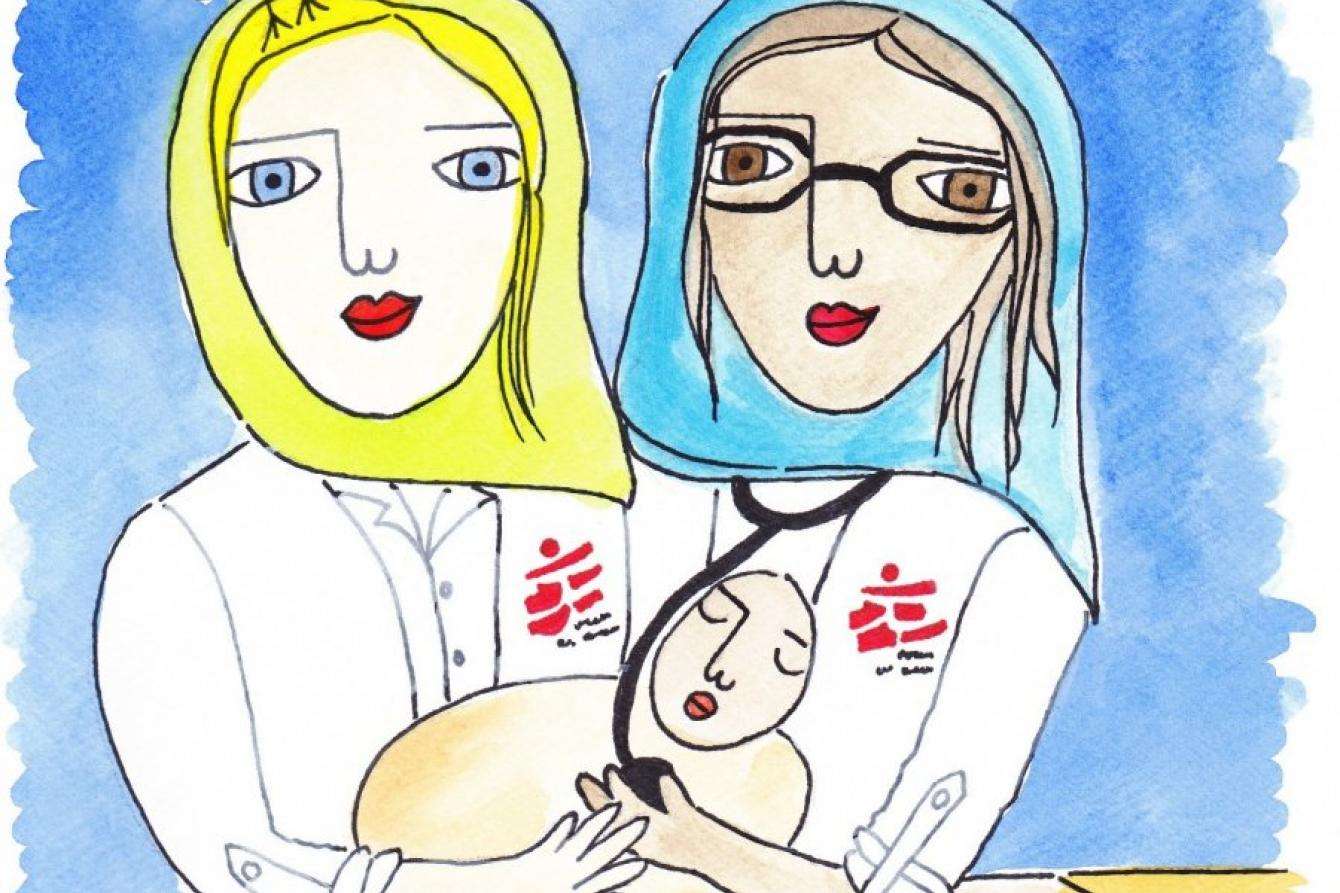
She waits all week
The mental health team organized for children to participate in painting and drawing activities. After the team disseminated colors, paints, and paper to a thirsty desert full of children, a daily pilgrimage of little artists would make their way to the main gate of the compound and wait patiently with their drawings.
The groups became very successful, with over 100 children turning up on the first day. I was blessed to receive many pictures from the children, including Amira who would wait outside in unforgiving heat until I came back from the other camp just to show me her drawings.
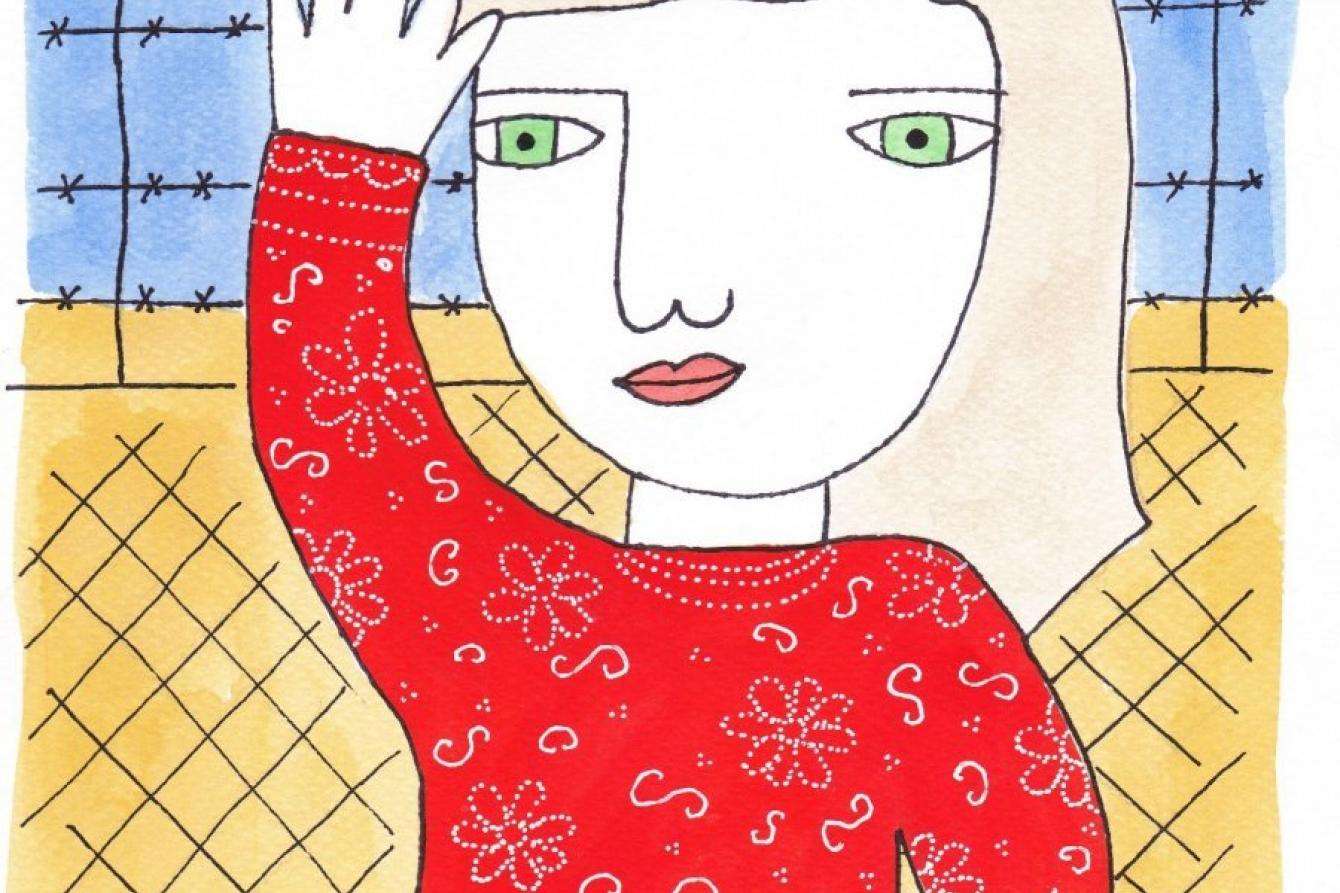
She’s gone
Despite the overwhelming sadness the women experienced, they showed great personal strength and resilience. They also showed a great deal of sisterhood as they shared stories of trauma and tragedy during the group psychosocial sessions.

Anatomy
I love vintage encyclopedias and other old medical books with delicate pencil drawn medical illustrations from yesteryear.
I wanted to draw the last place where most children of Mosul were relatively safe: in their mother’s womb.

Dr. Khalaf and Dr. Yousif
Treating cases of severe acute malnutrition is never merely a case of providing food and sustenance. The need for psychological intervention is high, too, because the health of the baby is contingent upon it.
Stressors from the trauma of war or scarcity of food can cause a mother to withdraw psychologically, and in turn, the child becomes apathetic and unwell. The mother's state of mind is then further affected by her child’s withdrawal. This perpetuates the cycle, as the mother withdraws more and the child's health continues to suffer.
The love and support of a great team, as well as the psychosocial support of good friends and family can make all the difference. The Iraqi doctors [with us], Dr. Khalaf and Dr. Yousif, were an asset to the project, showing empathy and compassion towards every patient.
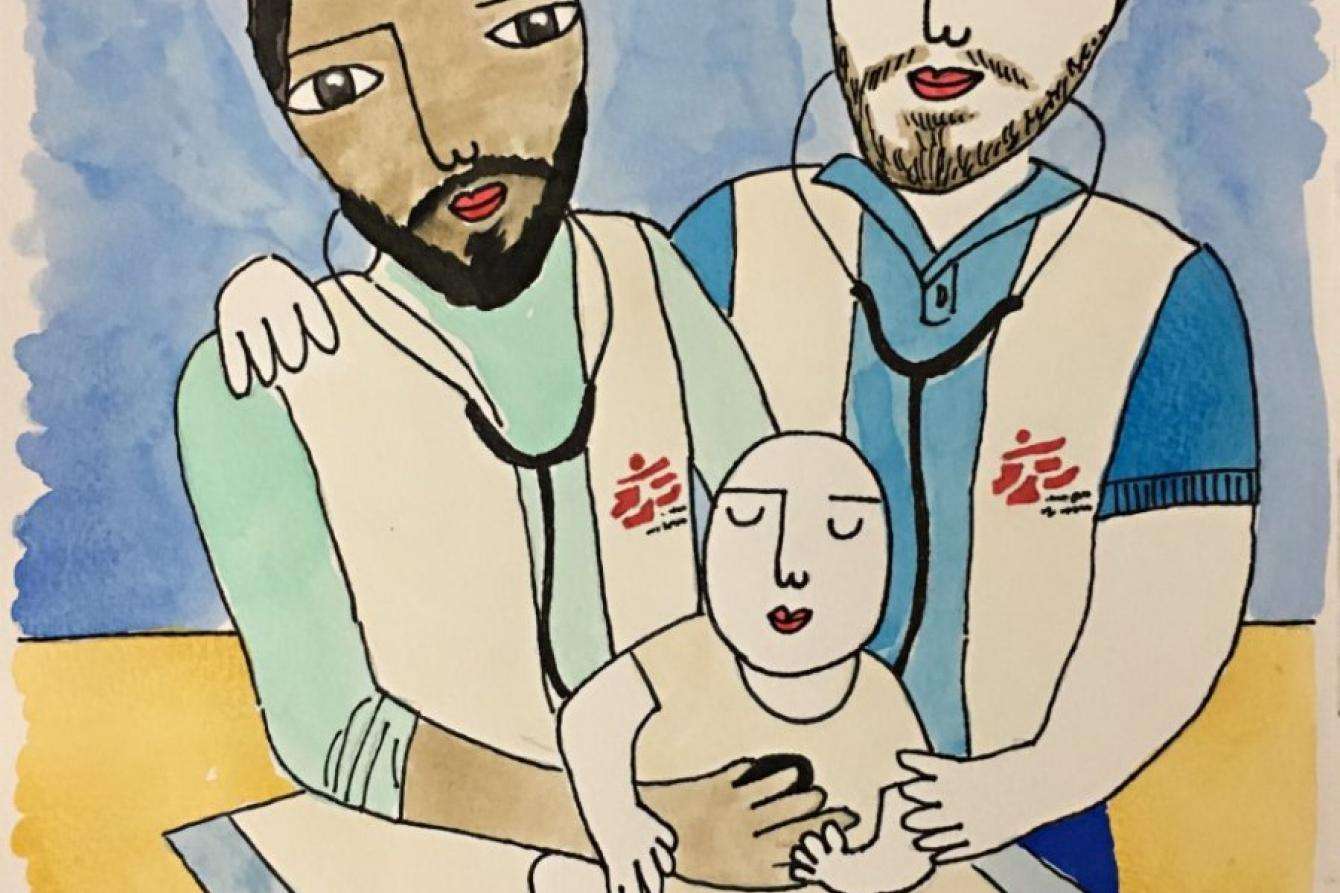
The power of Plumpy’Nut
Plumpy’Nut is a ready-to-use therapeutic food administered as part of the appetite test in our Qayyarah outpatient nutrition program and once the mother/carer was registered she would return with her child for ongoing assessment.
We had a number of dropouts from the program, but most parents were happy once they saw that their child was healthy again. These parents assisted our community health workers by communicating their confidence in us to others.

Mosul dreaming
Many women, as well as the men, would tearfully reminisce about life in Mosul before it turned ‘black’ – a term used to describe the period of Islamic State group occupation.
The way their faces would beam when they spoke of their lives before, is depicted in this illustration of a woman lovingly wrapping her arms around her memories of the city.
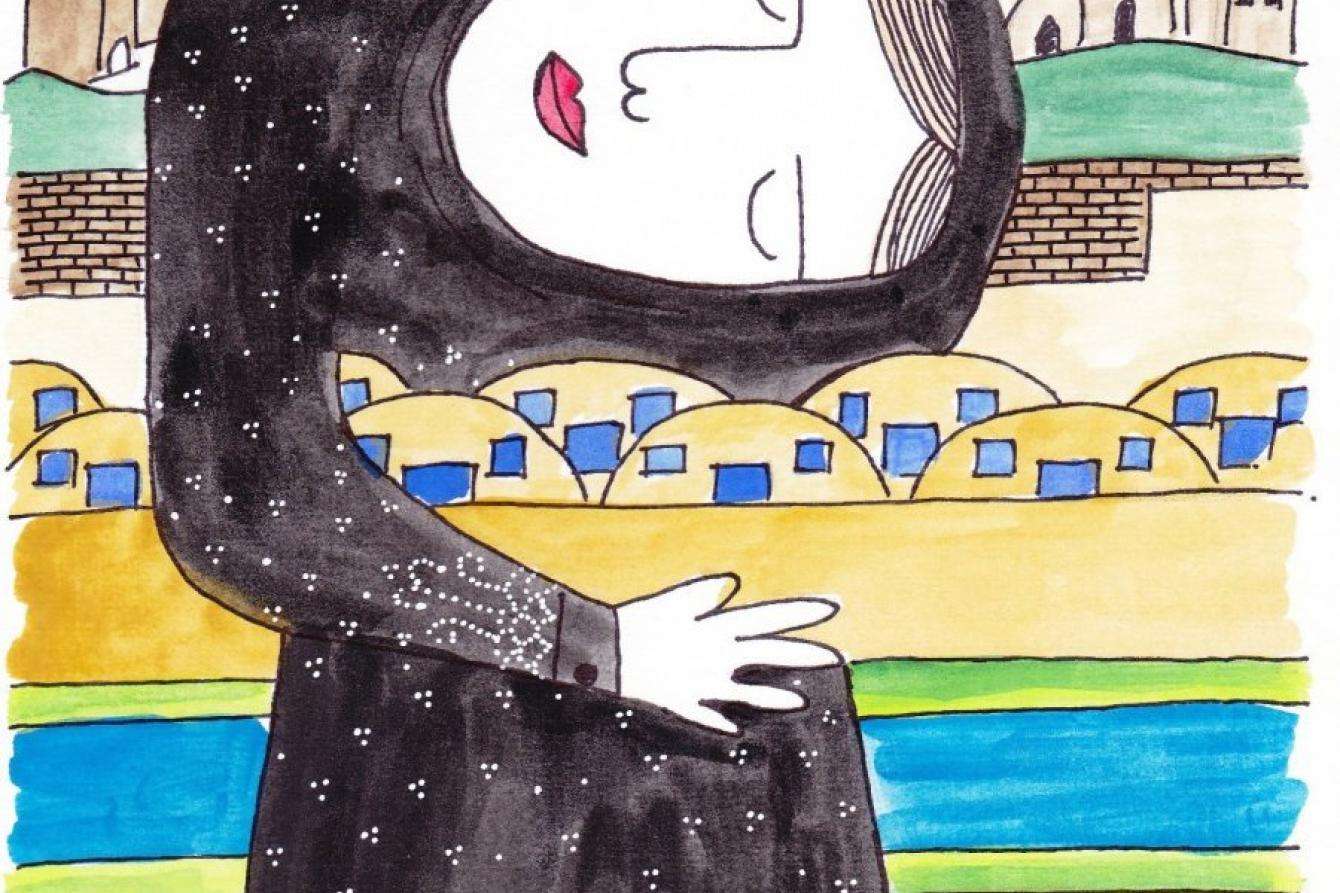
Arab family
It was not typical to see whole families together due to the war taking fathers, or mothers or children.
In some rare instances, a family would arrive at the project in Qayyarah; the father would wait at the gate while the mother waited to be assessed. Sometimes the father would come inside and be seated in a room along with other male carers.
I witnessed a rare moment one day when a complete family left the compound smiling as they held their baby.
